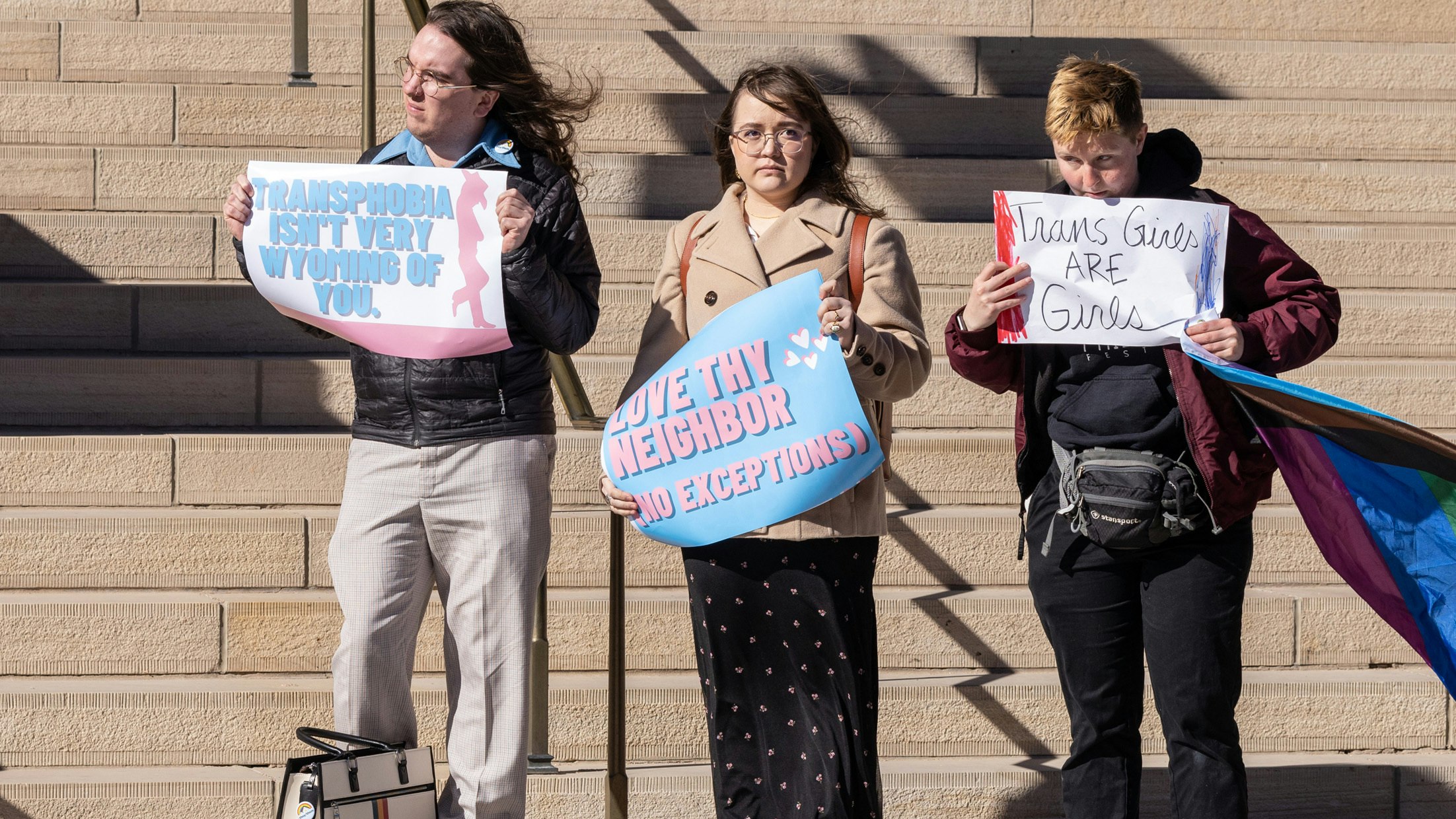A school district in Rock Springs did not violate a teacher’s free-speech right by requiring her to use students’ preferred pronouns. But it may have violated her religious right as a teacher and her religious and parenting rights as a mother, a federal judge ruled Monday.
U.S. District Court Judge Scott Skavdahl, of Wyoming, is allowing most of Sean and Ashley Willey’s lawsuit against Sweetwater County School District No. 1 and its leaders to advance in civil court. He also dismissed Ashley Willey’s argument that the district violated her free-speech right as a teacher.
The case started April 20, when the Willeys sued the district for using a male name and pronouns for their high school daughter, while allegedly keeping it a secret from them. Because she teaches in a different school in the district and is subject to the school’s pronouns policy, Ashley Willey also accused the district of violating her religious and free-speech rights as a teacher for requiring her to refer to students by their preferred pronouns against her beliefs.
First He Blocked The Lying
Skavdahl on June 30 issued a preliminary injunction barring the school district from lying to parents about their students’ gender identities and treatments surrounding them. He cited constitutional case law giving parents a fundamental right to the care, custody and control of their children.
The district then adopted a new policy, in which teachers could only hide a student’s gender identity from his or her parents if the student’s health or safety would be at risk by revealing them.
The district asked Skavdahl in July to dismiss the Willeys’ entire lawsuit.
Monday’s order denies most of that request, but grants parts of it.
Judge: Alt Pronoun Policy Is Teacher’s Duty
Skavdahl dismissed altogether Ashley Willey’s claim that the district violates her free-speech right as a teacher, saying a school district can compel any legal speech from its employees as part of their duties.
“Referring to a student by their chosen or preferred names in a classroom, pursuant to a school district policy, is part of a teacher’s official duties,” wrote Skavdahl. “The Court is not persuaded that calling students a preferred name, including one that does not align with a student’s biological sex, forces Mrs. Willey to forgo her First Amendment right to free speech.”
But Religion Might Be An Issue
Though following the teacher policy isn’t unconstitutionally compelled speech, it may run afoul of Ashley Willey’s religious rights, Skavdahl wrote, adding that it’s too early in the case for him to say definitively.
He’s allowing her religious claim to advance in the lawsuit.
Willey’s complaint says the original policy violated her right to the free exercise of religion by making her deceive parents and by betraying her belief that sex is immutable and part of God’s design.
The district’s new policy removes, generally, the deception part.
It does not remove the mandate that allegedly violates Willey’s belief in God’s design of the sexes, though it says religious accommodation may be allowed, Skavdahl noted.
It’s too early in the case to tell if Ashley Willey has a dispute with respect to the new policy, so the district must contest her claims in court, he added.
Parental Rights And The Student Who Left
The Willeys’ high-school age daughter now attends a different school, and the Willeys have not alleged that she’ll return to Black Butte High School in Rock Springs, where the controversy started.
So Skavdahl dismissed Sean and Ashley Willey’s requests that he declare the school in violation of their parental rights and religious rights as parents, and that he block the school from violating those rights.
Such a declaration, and such a block, are “moot” with the student in a different school, likely for rest of her high school career, Skavdahl wrote.
But the Willeys have “sufficiently pled” violations of their due-process and religious rights to parent the girl, the judge added. So while they can’t ask the judge to alter the district’s policy enforcement on those claims, they can still ask for compensatory and nominal damages on them.
A Little History
The Willeys’ lawsuit is against the district, its Superintendent Kelly McGovern, its Human Resources Director Nicole Bolton, Director of Student Services Kayci Arnoldi, and Black Butte High School Principal Bryant Blake.
The controversy started in the 2021-2022 school year, when the girl was dealing with flashback nightmares from a childhood trauma. At school, her peers told the girl that she was interested in sports and other typically male interests because she was “trans,” according to the complaint.
The school district’s teachers and personnel reportedly started calling the girl by a boy’s name and pronouns at her request. Her mother didn’t learn about it until the following semester, in March 2022, the complaint says.
Furious, she wrote to administrators telling them to use her daughter’s given names and natal pronouns, saying her daughter is a “TOMBOY,” and that everyone overlooks the existence of tomboys lately in favor of transgender treatment.
Clair McFarland can be reached at clair@cowboystatedaily.com.





